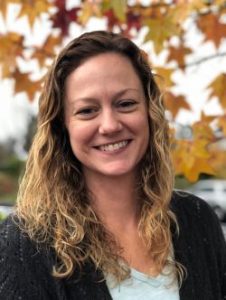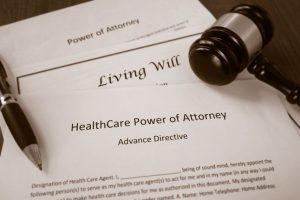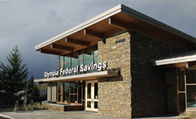When a 4.6 magnitude earthquake struck in the middle of the night near Monroe on July 12, residents were jolted from their beds and reminded that while California is known for its tremors, Washington State also sits on a set of shifting tectonic plates. For years, emergency workers have been warning Washingtonians to be prepared for “the big one,” a quake that geological studies suggest will have a 37 percent chance of being magnitude 9.0 or higher and is expected to occur within the next 50 years.

Being ready for such an event is a challenge for anyone, but seniors have special considerations when it comes to disasters. Geriatric Care Manager Krista Koval and Kristin Thunderhawk LPN are local experts on aging at Sound Options, a Professional Geriatric Care Management agency based in the South Puget Sound area. “We work with a lot of seniors who want to stay home independently, and planning for the unexpected can help them do that,” says Koval. “If they have a plan and a support system built around them, it makes a huge difference when there’s a crisis.”
Koval and Thunderhawk recommend the following steps for seniors and their families to proactively address emergency preparedness:
Make a plan. Having a process in place ahead of time saves both time and money, says Koval, because precious documents won’t need to be replaced. She recommends including the senior in the plan and soliciting his or her input. “It’s important to not just prepare the plan for them but to actively involve them,” says Koval. “It gives seniors control and helps them to stay independent.”

Designate clear roles for family members, neighbors and caregivers. “It’s important to identify who the key people are in an emergency,” Koval explains. “Often it’s family, but many of our seniors also have very close relationships with their neighbors.” Families who live out of town or in other states often hire companies like Sound Options to not only consult with families. Professional and state-certified Caregivers can also check on their relatives once a month, once a week, or daily as needed, so it’s important to factor caregivers’ presence into emergency plans.
For seniors who are no longer capable of making decisions, everyone involved in any crisis management should know who has Power of Attorney (POA). That paperwork should be included in the Personal Health Record file (see below).
Perform a safety check on the home. Look for overhead objects that might topple during a tremor and keep walkways clear, Thunderhawk advises. “Our seniors have less time to react during an emergency,” she says. “They move slower and they may have mobility issues. Within the home, make sure you know where your fire extinguishers are, that they’re readily available and updated. Keep a pair of good solid shoes accessible and have a sketch or a map of an escape route handy just in case.”
Maintain a Personal Health Record file and make sure key players know where to find it. Keeping copies of important paperwork saves time and money in the aftermath of a disaster. The Personal Health file should include:
-

Keeping a Personal Health File with important documents in an accessible place can prevent further problems after disasters. Photo courtesy: Sound Options The senior’s name, address and birthdate
- Emergency contact information
- Primary care physician contact information
- Copies of insurance policies
- List of medication
- List of any drug allergies
- List of diagnoses (if a senior is diabetic, for example)
- Power of Attorney paperwork if applicable
- Advance Directives
Advance Directives, sometimes known as Living Wills, provide clear directions to family,
friends, and health care professionals about a person’s end-of-life care wishes. Once the paperwork has been assembled the next step is ensuring that it’s easy to find. “It’s important for everyone to know that a binder exists so that they are aware and able to to access it,” says Koval. “We always make sure it’s located in a central place.
Have emergency supplies packed and ready. These include three to seven days of non-perishable food and bottled water, flashlights, batteries, extra cell phone and charger, extra clothes and blankets and basic toiletries as well as tools like can openers or swiss army knives. For seniors, extra medications and medical supplies are critical. “They’ll want to have things like extra hearing aid batteries or if they’re diabetic, an extra glucometer,” says Thunderhawk. “If someone uses a walker or a cane, have another one handy.”
Acting now can prevent significant hassle later. Thunderhawk recalls patients she’s met who lost everything in a disaster, and others who kept many of their possessions but were unable to save key documents. “They had to go back to the Social Security office and refile for the things they had lost,” she says. “It’s sad. I really think educating our seniors and their families is so important so they can be prepared and have that connection with their communities, that way everyone can work together.”
Visit the Sound Options website to learn more about the services they provide or call 800-628-7649.
Sponsored















































